By Patricia Belyea
SEATTLE WA This year I made two quilts that included the clothing of loved ones. Fabrics thoughtfully stitched together into blankets of comfort and warmth became revered objects—giving me a new understanding of my calling as a quilt maker.

My most recent quilt, a commission by Rod Brooks for his wife who is battling cancer for a third time, incorporated clothing from Cindy’s late father, her mother and Rod. Titled The Power of Love, the healing quilt also features lots of vintage Japanese yukata cottons.
This blog post reveals the fits and starts that defined the creative journey of making this special quilt:
When Rod and I first spoke about Cindy’s quilt, his only request was that some pieces of clothing from Cindy's mom and her dad be included in the quilt. Working with family members on the East Coast, Rod arranged for two packages of clothing to arrive at my home ten days later.

It was obvious that Dad was a hard-working man as his shirts were heavily worn. A brown plaid shirt seemed like the best fabric. (Once in production, I added a featherweight interfacing as the shirt was quite thread-bare.)
All of Mom’s supplied clothes were smock-type aprons. Some of the aprons looked great with my prettiest yukata cottons, flowery and bright. But I needed something that complemented the plaid shirt so I chose a rust-colored apron with purple, barn red and olive green brushstroke stripes.
The yukata cottons that coordinated best with the clothing radiated with autumnal colors. My big challenge was to not make a sad brown quilt.

I choose two main fabrics to border the quilt.

The fabrics for the center of the quilt top were cut up with scissors, ready to sew together into an improv pattern.

The quilt top progressed smoothly. Yeah!

Voila, the top was pieced completely!
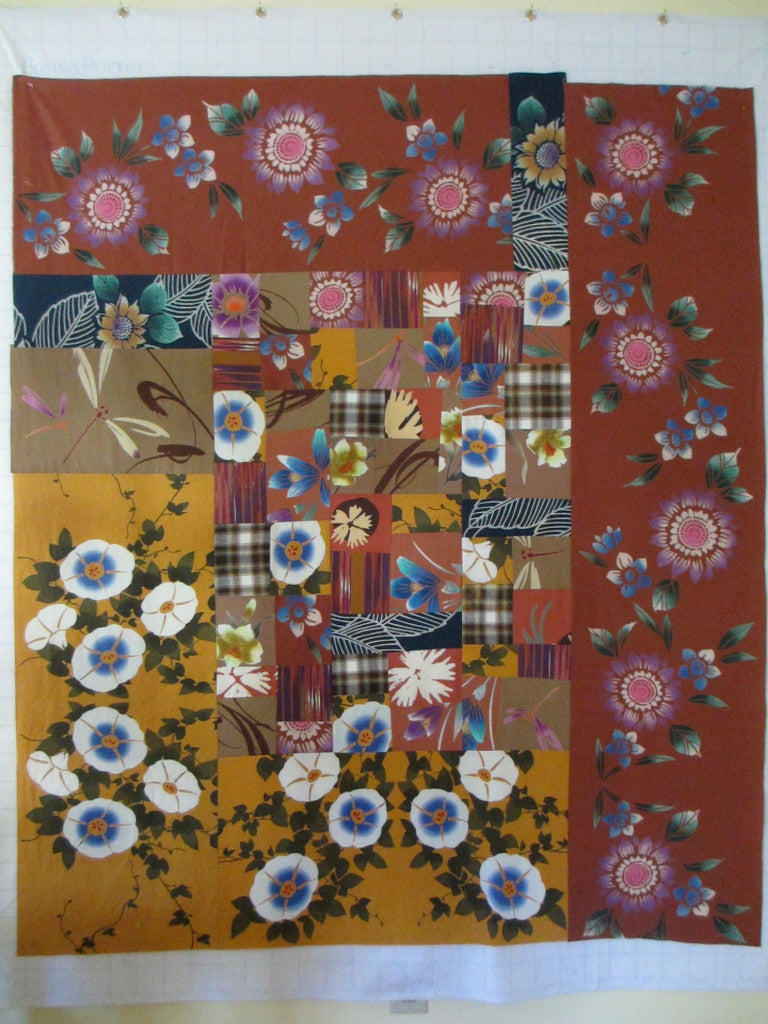
There was only one problem. The composition was all one big mush of pattern. Something was needed to define the center and separate it from the borders.
I asked Rod for some of his solid colored work shirts so I could add some of his love to his wife's quilt. A rolling suitcase of shirts arrived on my front porch. From the huge selection of shirts Rod was willing to give up, I chose two—an olive green one and a dark teal one.
After I cut up the two shirts, I auditioned strips of solid colors as options for framing the center section of the quilt top.
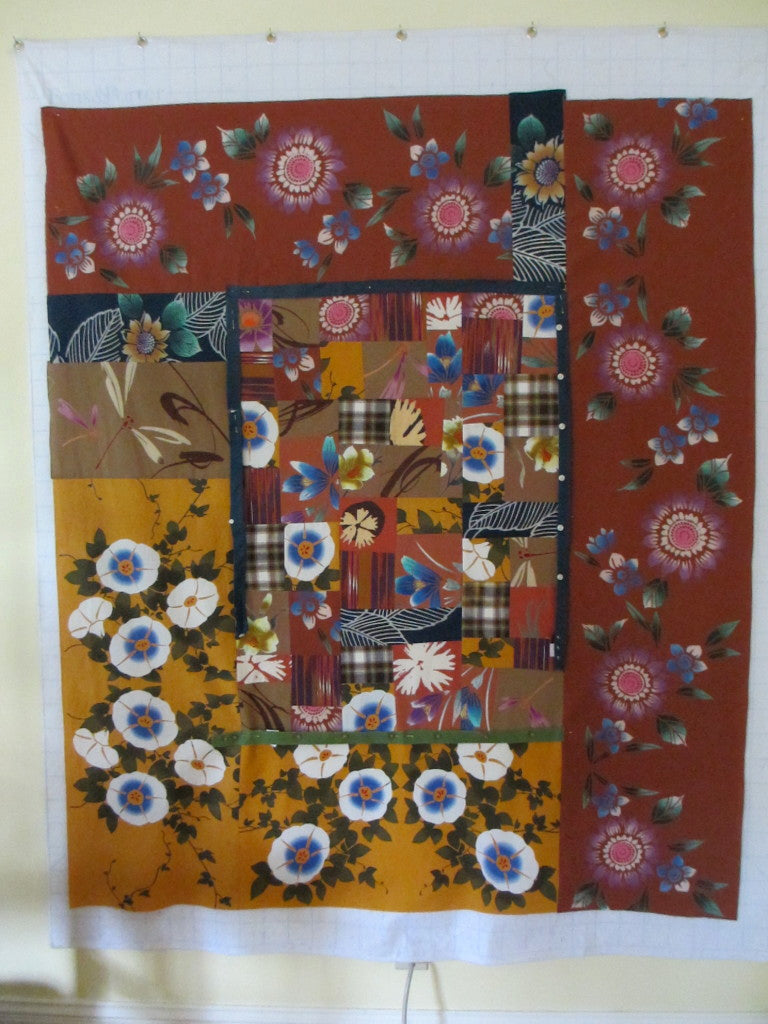
The shirt plackets used in the framing exercise had buttons on them. That gave me the idea of adding buttons to the top of the quilt. The final finished quilt top!

On to designing the back of the quilt!

When my twin sister saw the above idea for the quilt back on my design wall, she commented “I think I like that better than the front.” Yikes, it looked like a quilt top. It was time to rework the idea and add LOTS more of Rod’s shirts.
I took away the big borders and added the blue and green shirting in wacky sets of stripes. Then I moved around the composition until I was satisfied.
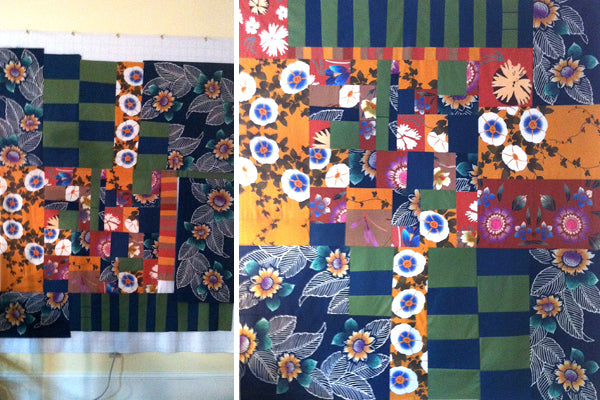
Once I was finished with the back, I pre-washed the silk batting.
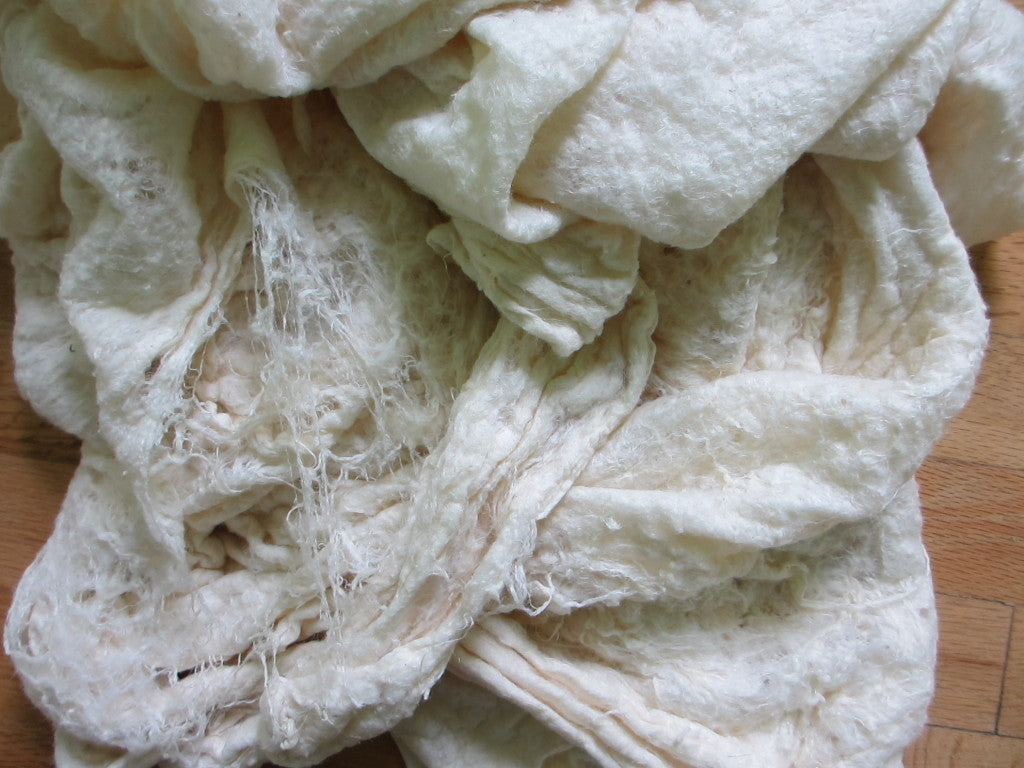
What an expensive mess I made as I spun the batting in my front-loading machine by mistake! I ordered new batting and rush delivered it to my home.
My original idea was to finish the quilt with a scalloped edge so I made a freezer paper pattern. I marked the curvy pattern onto the fabrics with a water-soluble pen to save me from stitching where the quilt would be trimmed.
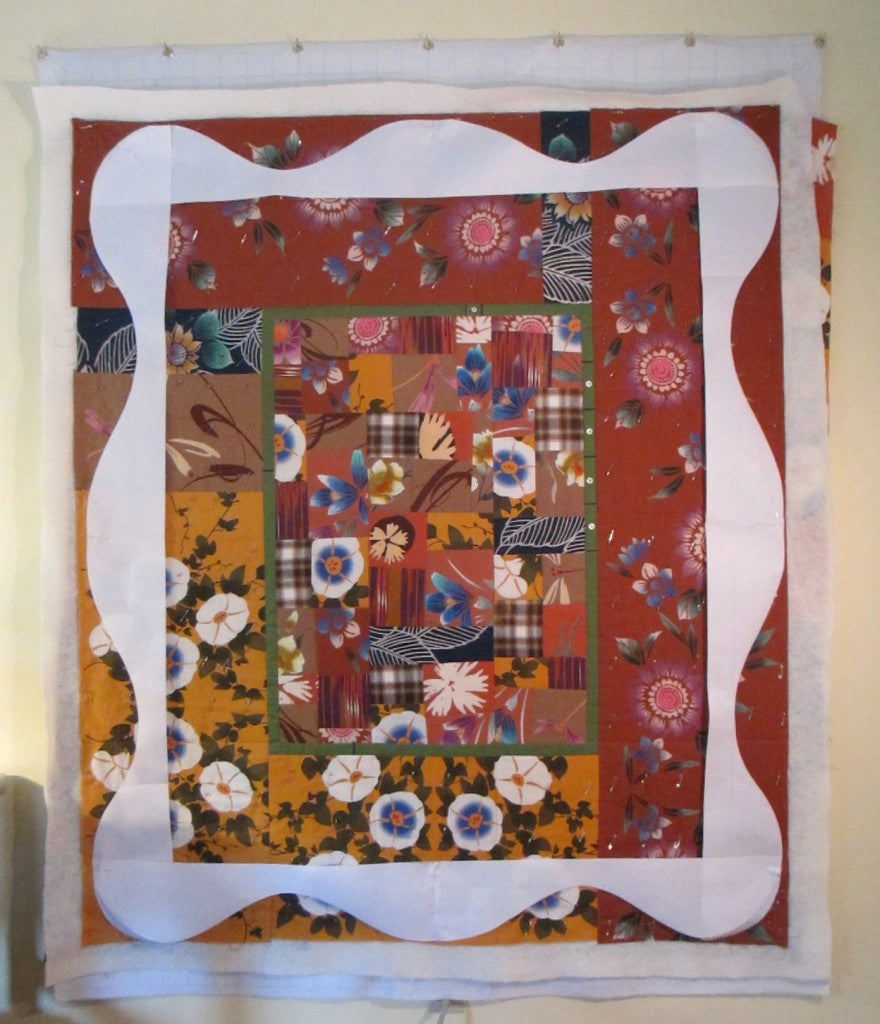
Once I had the batting in hand, it was time to pin baste the “quilt sandwich”—the top, batting and back. Then I fast forwarded on the machine quilting as Rod tightened my proposed delivery schedule by two days in the last week of production. I was now in a stitching marathon—I stitched-in-the-ditch every seam and then around the big flowers and dragonflies in the border.
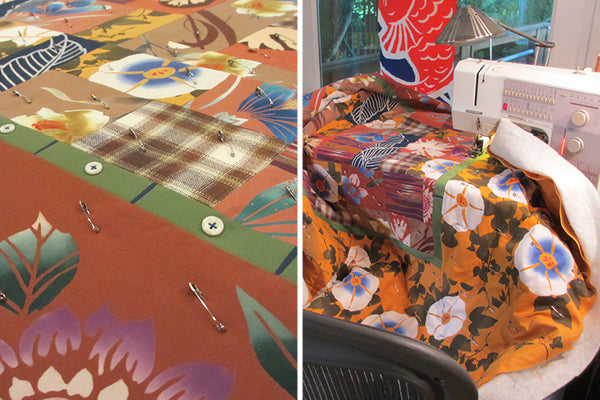
The center area was lightly stitched with some double straight lines. The border was all-over quilted with a zig-zaggy swirl pattern in contrast thread colors—green on rust, magenta on mustard, hot pink on brown. The heavy quilting made the flowers in the border really pop. In total I used eight colors of DMC machine embroidery thread in the quilting.

I could see there was a lot going on so I abandoned the scalloped edge for simple radiused corners. To remove the pen marks from quilt top, I sprayed it with water and had to wait for the project to dry. In the meantime I made the binding out of some lively Free Spirit fabric I bought at Drygoods Design in Ballard.


Once the binding was added to the quilt, The Power of Love quilt was raced off to the photographer’s studio at 9 am in the morning. That afternoon I picked up the quilt at 4:30. There was just enough time to sew on the label before Rod arrived at 5:30 to pick up his wife’s gift.
That night Rod gave Cindy the quilt so it would be with her the next morning when she received her next round of chemotherapy. Once handed off, the quilt became an ally for the Brooks in their battle against cancer.

As always, I learned a lot working on this commission.—especially the power of meaning, memories, and love stitched together into something as unpretentious as a quilt.









